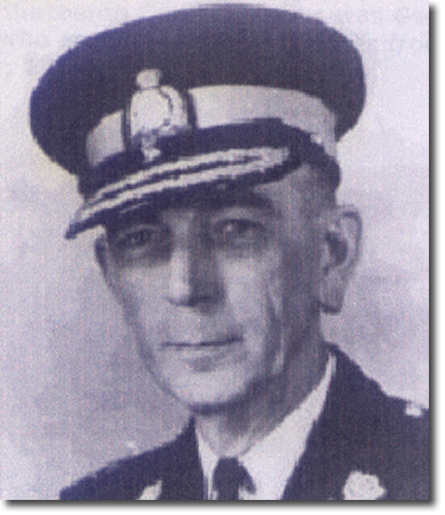|
|

 |
|
April 1, 1960 - October 31, 1963 Harvison was born on March 26, 1902 in Montreal, Quebec. At the age of 17, he enlisted in the Royal North-West Mounted Police where he served for four years. He was promoted to Detective Constable in 1922, but resigned his position in 1923 and accepted employment with the Better Business Bureau of Montreal. In 1932 he rejoined the Mounted Police. Harvison quickly rose through the ranks of the Force gaining much experience in criminal investigation. He studied law enforcement methods in Great Britain, the United States, Pakistan, India, Ghana, Liberia and most European countries, and was especially interested in intelligence gathering systems. From 1945 to 1946, he utilized his knowledge during the investigations surrounding Igor Gouzenko and the revelation of a Russian spy ring in Canada. In 1953, Harvison was named Director of Operations and Criminal Investigations in Ottawa, and in 1955, Director of Security and Intelligence. One year later, on April 1, 1960, he was appointed Commissioner of the RCMP. Harvison recognized that Canada had become an increasingly attractive target for organized crime in the last decade. To attack this problem, he established National Crime Intelligence Units across Canada in 1961 to gather information on syndicated crime and associated individuals for a central repository in Ottawa. He was often outspoken on the subject and as a result of a speech at the Canadian Club in Toronto a Royal Commission on Crime was established in Ontario. He submitted a brief to this commission giving specific details of organized crime activities over the preceding 10 years and naming individuals involved. As a result of a news conference he gave at the Canadian National Exhibition in Toronto, the Ontario Police Commission began an inquiry into organized crime. It was ground breaking, verifying the existence of a highly organized criminal network to a previously doubting public. Harvison believed to fight this new pattern of crime, it was necessary for close cooperation between police forces. He extended the Force's contact with other police forces, nationally and internationally, holding conferences of police organizations and visits with heads of other police and intelligence organizations to keep abreast of international developments in the police and counter-intelligence fields. He was the Canadian representative of the International Criminal Police Organization (Interpol), a Member of the International Association of Chiefs of Police, the Canadian Association of Chiefs of Police, the Maritime Chief Constables' Association, the Ontario Chief Constables' Association and the Industrial Security Association. He was also President of the United Services Institute and a Member of the Royal Canadian Military Institute. Harvison retired on October 31, 1963 and wrote his autobiography, entitled The Horsemen. He died on February 12, 1968 and was buried in the Beechwood Cemetery in Ottawa. In 1937 Harvison was awarded the King George VI Coronation Medal, and in 1938 became the Honorary Second Lieutenant of the Canadian Militia. He received the RCMP Long Service Medal in 1948, was given the Gold Clasp and Star in 1963, and became a Commander Brother of the Order of the Hospital of St. John of Jerusalem in the same year. |
Armed Forces | Art and Culture | Articles | Biographies | Colonies | Discussion | Glossary | Home | Library | Links | Map Room | Sources and Media | Science and Technology | Search | Student Zone | Timelines | TV & Film | Wargames
